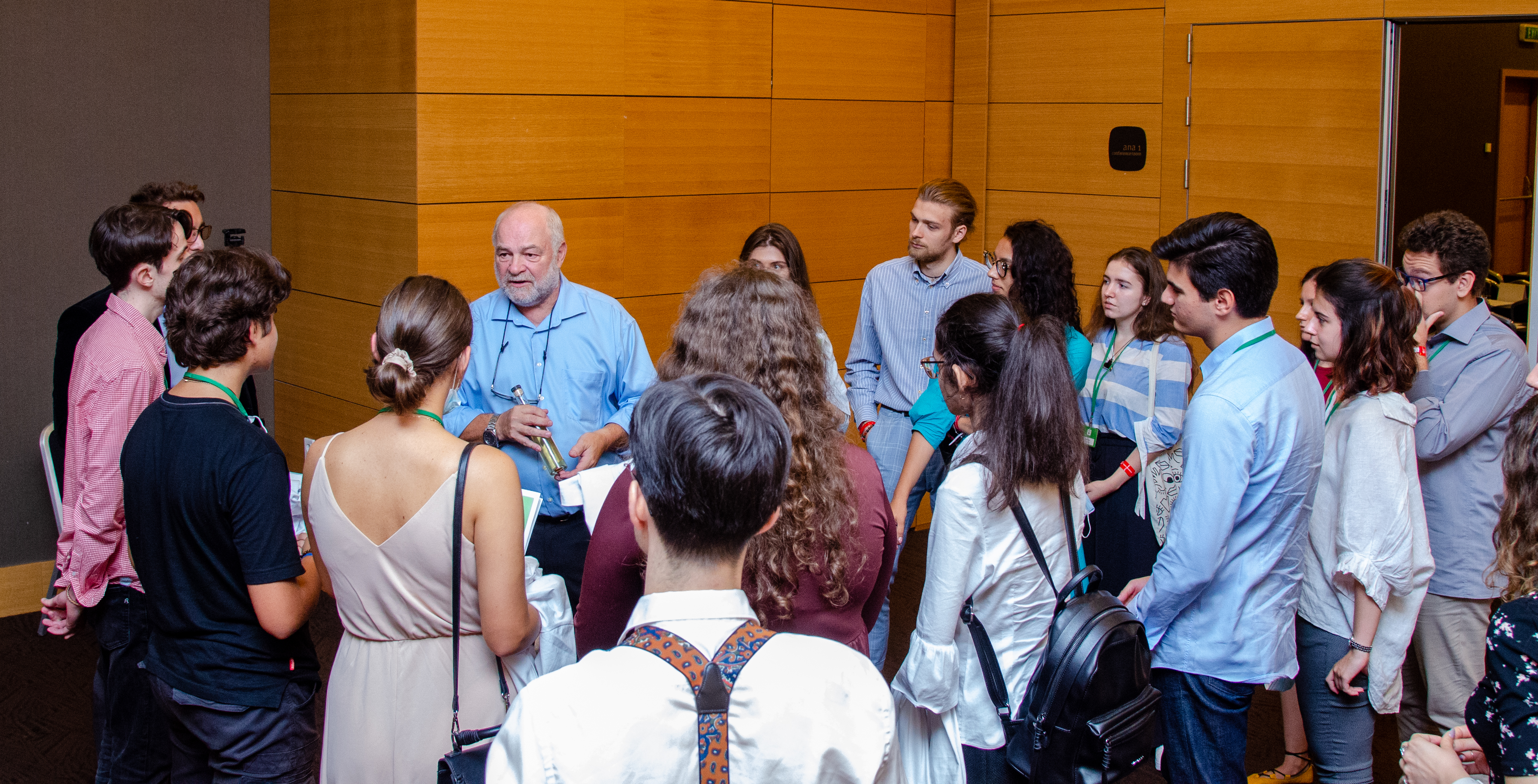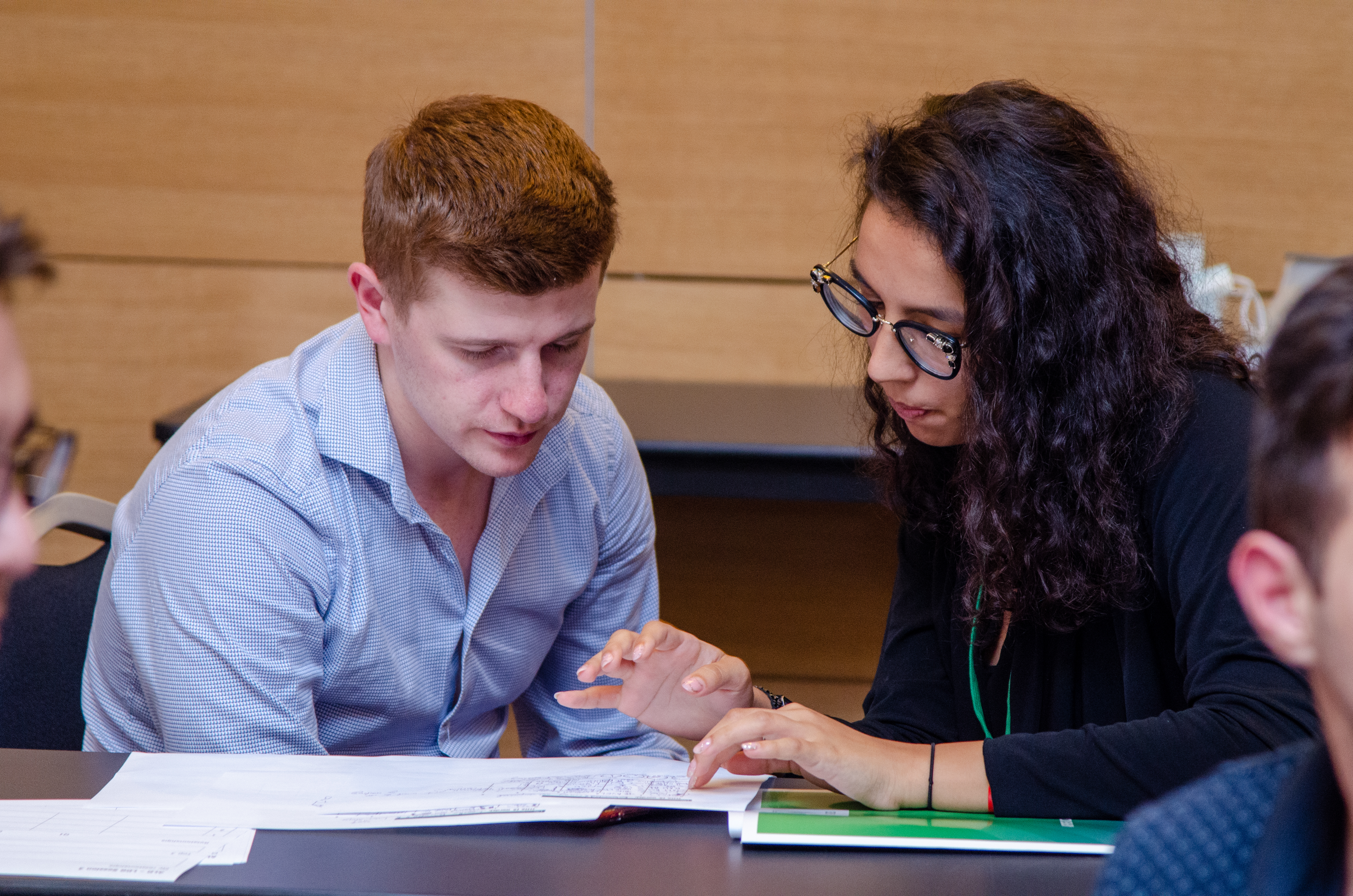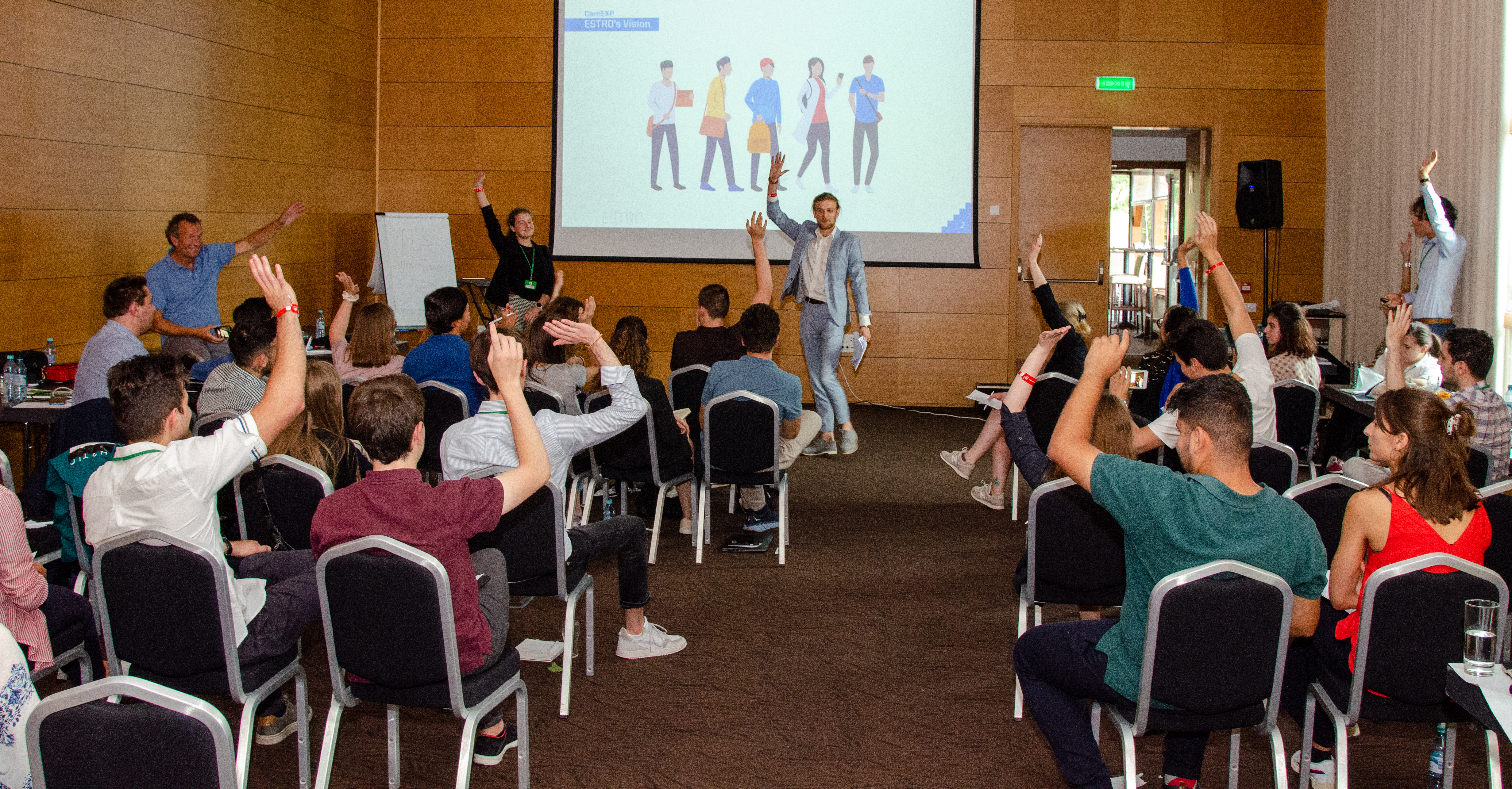How to change your life, forever
October 27, 2021
As I work, an open letter envelope lies on my desk. It is full of small folded pieces of paper, containing messages from friends. “I am glad you were part of this” one recites. “Thanks for listening to me” says another.
This is the story of how I got them, and about what they mean.
A “One-week long MBA”
Romania is a country that does not generally enjoy a great reputation here in Italy. Once a man told me he firmly believed that “Romanian immigrants brought smallpox into Italy”. Although not all so extreme, Italians might suffer from - consciously or unconsciously - stereotypes about Romanians.
As a consequence, when some months ago I announced a one week trip to Romania, I was met with some confused stares.
Nonetheless, I had a very good reason for visiting: Aspire, “the only academy in Eastern Europe where Harvard and Stanford professors teach and inspire”.
I had applied for their flagship program: Aspire Academy, a “one-week long MBA”, as Alex Radu, one of Aspire Academy’s speakers & founders, described it, and I was in fervent anticipation.
At Aspire, me and other 50 selected international students and young professionals were going to be exposed to a tight series of lectures, workshops and activities on themes such as leadership, entrepreneurship, communication and personal development.

Although all of this sounded enticing, what made me board that plane weren’t the lectures (or the 5-star resort in the hearth of the Carpathians where Aspire took place), but rather the impressive word of mouth I had received by Aspire Alumni in the months before.
Noticeably, people talked of a “life before and after Aspire”, and often mentioned the impact of the program on their personal development.
In retrospect, I believe Aspire is actually engineered to shake up life from drifting into the inertia-bound path it usually tends to follow. Behind the scenes, every minute is somehow orchestrated in order to create the perfect ground for a personal blossoming. The very air that breaths in Aspire is imbued with some sort of magic.
Finding one’s star in the black of night
When participating in Aspire, this July and August, I had the chance to see some of the mechanisms of the “Aspire Effect” in action. One of them is the True North Groups.
To me, Aspire is all about deciding what to do with your life. And True North Groups are precisely the right tool for this goal. As Paul Graham said:
“The bigger question of what to do with your life is one of these problems with a hard core.”
Bill George, the inventor of True North Groups and professor at Harvard Business School, understood that and created True North Groups with this fact in mind.
Choosing the direction of one’s life is probably the hardest decision that any individual has to make every day. For this reason, you can’t really go it alone.
Aspire organizers created True North Groups so that you and a few carefully selected others will form an intimate group that acts as a safe space where to share in-depth discussions about your life, past and future. The whole idea is to bring your past life choices, motivation and values out in the light, as to increase your own awareness of them as well as to let external observers provide helpful guidance and feedback.

True North Group sessions take place at night, in a quiet and separate hotel area, where, in front of a glass of wine, each member has the total and complete attention of the other members as they speak about their life. As the sessions unfold, someone who a moment before was just a classmate, a half-stranger, lets your gaze roam free in the innermost structures of their persona. As in an open anatomy book, each member points at masks, bleeding wounds, unexplained emotions: in an almost vertiginous experience you feel transplanted in someone else’s existence.
That moment is when your own life is invested by a clear, straight light, allowing a common experience of insight to materialize among the members.
I am sure many solemn resolutions were taken in those nights.
A true European nation, with a twist.
Another piece of machinery responsible for the transformative power of the event came from the fact that, although international at the core, Aspire did not take place in some huge frenetic hub as London or New York.
Aspire took place in Romania, a singularity of a country of Latin language and background, among Slavic neighbours.
Growing up, the young Romanians I met were imbued with the many contradictions of their nation and soon learned to accept and thrive in instability and uncertainty.
Stubborn and optimistic, they often mix American ambition with the bluntness so typical of their home country, creating upright personalities capable of being equally shocking and inspiring.
Take Anastasia Soare, Romanian born US billionaire, participating via Zoom, who got asked by a student how would she have handled insuccess. “What if I fail?” she answered without hesitation “I don’t care, I’d do it anyway!”.

Her attitude was matched only by her host, Alex Radu, a successful Harvard graduate working in Goldman Sachs. Alex suggested a radical attitude when dealing with oneself. He presented an “onion” model of personality, where some aspects of the self, such as the way we present ourselves to others, are positioned more externally compared to more internal and subconscious aspects, as our beliefs on how the world works.
Our beliefs about ourselves, too, are especially critical in this theory since they might deeply influence our decisions without our direct knowledge. “I am a lazy person”, “I give up”, “I get discouraged easily”, these are all examples of beliefs. They sit internally at the core of who we are and end up having a critical influence on our behaviour.
Alex Radu suggests treating your beliefs like you treat your clothes: choose the one you like, discard or change the other for new ones. “Find your dysfunctional beliefs, extract them and implant new ones in their place”. Although provocative, his message surely invites us to reflect on the usefulness and artificial nature of our beliefs, and on the ultimate power of human decision.
On Romanians
Romania is often an underlooked country, that for many is only associated with communist dread and poverty. I wonder if Romanians who travelled abroad developed a thick skin in response to these stereotypes, as they often appear to speak and act with attitude and confidence.
When investigating this sort of personality trait with a Romanian friend of mine, he confessed that he felt as “there’s a time for self-doubt, and a time for play. When you are in the game, play: don’t undermine yourself”. Don’t show your cards, keep up the act.
This last rule must prove most useful in Romania itself, a country where there’s a competition for everything.
I had a hard time finding someone in Aspire who did not compete - and win - in some sort of local or national competition. Debate, mathematics, programming, even history and geography, you name it. It is very common to meet Romanians working on two jobs, studying and working, working on side hustles, or attending two universities at the same time.
The competitive and “American” attitude is palpable and is no wonder that the rich curricula this work culture produces are well regarded by companies abroad. This is also facilitated by the baffling speed at which Romanians are able to learn languages: not a single person I met spoke less than 3 languages. This can be partially explained by the Latin roots of the Romanian language and by the fact that Romanians are exposed to foreign tongues such as English and French since their young age through television, media ads and schooling.
A different perspective
Given the Romanians’ attitude towards work, you would expect a negative correlation with fun.
Surprisingly, that is not the case. “Romanians learn to party, dance and have fun at a young age, around 15 - 16” tells me Val, a microbiology student from Montreal, back in Romania for the summer period.
Partying is considered a normal, physiological activity, to the point that high school balls are organized by the school itself and hosted inside clubs, drinks included. Indeed, Young Romanians enjoy relative freedom from parental restriction in terms of partying and have early experience with nightlife. Consequently, when teens reach adult age, they don’t feel the urge to bridge drink or party the house down. In a sense, this sort of “Romanian early partying tradition” might be helpful in lifting the taboo around alcohol and nightlife, making it less of a secret pleasure, and therefore less dangerous for boys and girls.

“I was surprised when I came to Canada” she said, “how everybody was bridge-drinking and getting wasted like it was a cool thing”. “In Romania, we do that in high school, then we get over it”.
I asked her more about the hyper-competitive Romanian high school experience. “I did not like going to school, I had bad grades” she confessed to me. “School was keeping me away from the things I really wanted to do: go out, meet people, manage my projects and follow my goals”.
Now, these statements did not make any sense to me: in my mindset, only serious and total dedication to school work would win you a position at any “good” university. Val was actually proclaiming the opposite, in an almost rebellious stance. She continued: “I had to prepare for my SLS exams so I did not really pay attention to my A levels. My professors knew that and were irritated but could not really fail me, as they knew I was a good student after all”.
Some people I met there defined this strategy the “Romanian way”: don’t work to be the best in the class, but to reach your goals.
“I had to learn how to cut corners”. “Break the rules”, she added, “try many things to discover what you like.” This mindset surpassed her own expectations as she founded an AI & Biotech startup in Montreal and found a part-time job on another one, while being a full-time student. A perfect example of the Romanian work culture I encountered. .
To me, her message carried a huge meaning as it was in total rupture with what most Italian high schoolers are supposed to do and think. In my environment, school is more similar to a punishing institution which goal is to trap students in a sequence of ever-increasingly difficult tests. I find the whole projectual and self-discovery focus Val had totally missing here in Italy, where personal extracurricular goals are considered distractions and are not encouraged by teachers in any way. But, more than that, what really sets apart her approach is the relative weight given to school compared to other professional or academic achievements.
School is not the only and absolute judge of your future.
How leaders face change
As in a metamorphosis, at Aspire you are most likely to be turned inside out: your beliefs about who you are, how you function, your own life story, Aspire is a time of self-understanding and “self reprogramming” Psychology of Life Stories .
This is the reason for the title of this article. Aspire is a school of change disguised as a leadership program.
Daniel Goleman speaks of leaders as extraordinary individuals who can focus on the future and prepare the present for its coming. To predict, adapt and ride the waves of time, any leader needs to be a master of (self) change. Focus, the hidden driver of excellence .
And changing ourselves is arguably the hardest possible challenge that we might face in life. As Brianna Weist said, the world, as well as the individual, is plagued with “big, ongoing and seemingly unsurmountable issues”. Climate disaster, obesity, addiction. And yet the solutions seem “so simple and yet so impossible to stick with”: stop smoking, exercise more, cut carbon emissions, etc… The Mountain Is You, Brianna Weist .
This is the most absurd paradox psychologists face: if only they could make people exercise a little more, smoke and drink a little less, the global impact on the health system would be measured in billions. And yet, such small changes are so hard that people “seem to change only when not changing seems the less comfortable option”.
Change is extremely hard, and this might be the reason why only leaders succeed in it.
How to keep changing your life

On our last day at Aspire, we all grouped and prepared for the last salutations. Some of us might have parted ways forever, while others might have seen the sprouting of new long-lasting friendships. We took the chance to share short messages of goodbye, placed in named envelopes which we would carry with us on our journey outside Aspire. I believe these messages might be the last card in Aspire’s masterful game.
Aspire is a concentrated emotional thunderstorm, meant to shake and uproot some parts of yourself. Only the centrifugal energy of the moment, the atmosphere, the people, the conversations and smiles can imprint the first step of change. Not only in your belief, but in your heart as well. Nonetheless, this power fades in time as life takes over again, as a barren volcanic island swallowed back in by the sea after a brief eruption. For this reason, Aspire infects its participants by attaching a living, beating peace of the event to them. These messages work as a memory trigger and bring back the reader to those days, and in doing so, to the emotional wiring reconfiguration the brain experienced in that period.
As we navigate in the wider, non-sensational, often colourless daily grind, only the determination, focus and strength of the leader can keep the rudder straight.
Aspire is just a metaphor, an inspiration, on what it means to exist across events, across days, across emotions, and carve one’s straight line in life.